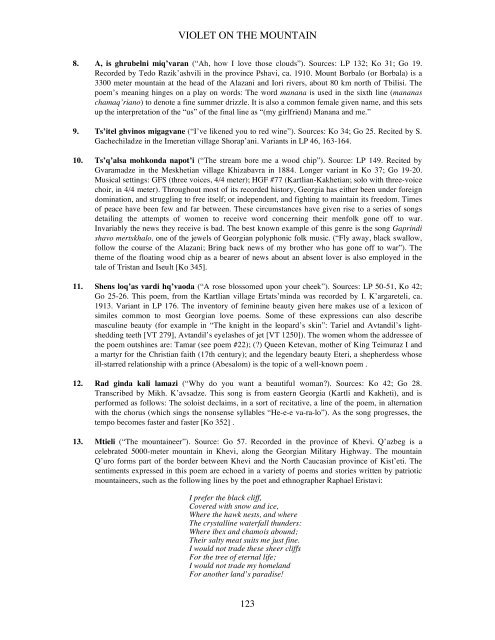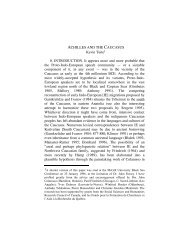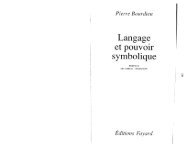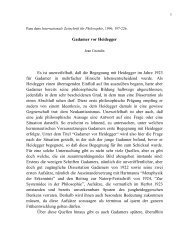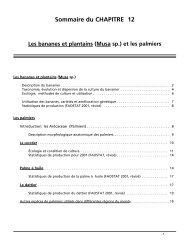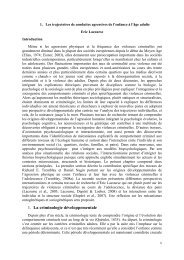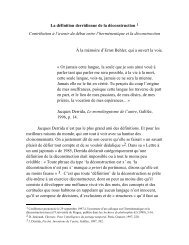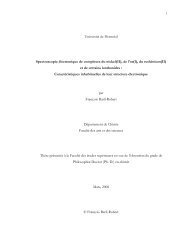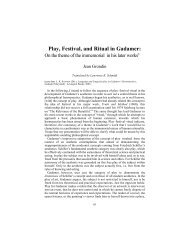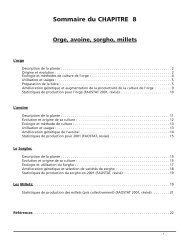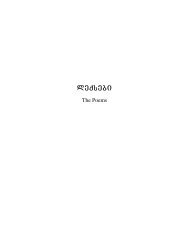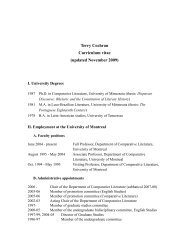Create successful ePaper yourself
Turn your PDF publications into a flip-book with our unique Google optimized e-Paper software.
VIOLET ON THE MOUNTAIN<br />
8. A, is ghrubelni miq’varan (“Ah, how I love those clouds”). Sources: LP 132; Ko 31; Go 19.<br />
Recorded by Tedo Razik’ashvili in the province Pshavi, ca. 1910. Mount Borbalo (or Borbala) is a<br />
3300 meter mountain at the head of the Alazani and Iori rivers, about 80 km north of Tbilisi. The<br />
poem’s meaning hinges on a play on words: The word manana is used in the sixth line (mananas<br />
chamaq’riano) to denote a fine summer drizzle. It is also a common female given name, and this sets<br />
up the interpretation of the “us” of the final line as “(my girlfriend) Manana and me.”<br />
9. Ts’itel ghvinos migagvane (“I’ve likened you to red wine”). Sources: Ko 34; Go 25. Recited by S.<br />
Gachechiladze in the Imeretian village Shorap’ani. Variants in LP 46, 163-164.<br />
10. Ts’q’alsa mohkonda napot’i (“The stream bore me a wood chip”). Source: LP 149. Recited by<br />
Gvaramadze in the Meskhetian village Khizabavra in 1884. Longer variant in Ko 37; Go 19-20.<br />
Musical settings: GFS (three voices, 4/4 meter); HGF #77 (Kartlian-Kakhetian; solo with three-voice<br />
choir, in 4/4 meter). Throughout most of its recorded history, Georgia has either been under foreign<br />
domination, and struggling to free itself; or independent, and fighting to maintain its freedom. Times<br />
of peace have been few and far between. These circumstances have given rise to a series of songs<br />
detailing the attempts of women to receive word concerning their menfolk gone off to war.<br />
Invariably the news they receive is bad. The best known example of this genre is the song Gaprindi<br />
shavo mertskhalo, one of the jewels of Georgian polyphonic folk music. (“Fly away, black swallow,<br />
follow the course of the Alazani; Bring back news of my brother who has gone off to war”). The<br />
theme of the floating wood chip as a bearer of news about an absent lover is also employed in the<br />
tale of Tristan and Iseult [Ko 345].<br />
11. Shens loq’as vardi hq’vaoda (“A rose blossomed upon your cheek”). Sources: LP 50-51, Ko 42;<br />
Go 25-26. This poem, from the Kartlian village Ertats’minda was recorded by I. K’argareteli, ca.<br />
1913. Variant in LP 176. The inventory of feminine beauty given here makes use of a lexicon of<br />
similes common to most Georgian love poems. Some of these expressions can also describe<br />
masculine beauty (for example in “The knight in the leopard’s skin”: Tariel and Avtandil’s lightshedding<br />
teeth [VT 279], Avtandil’s eyelashes of jet [VT 1250]). The women whom the addressee of<br />
the poem outshines are: Tamar (see poem #22); (?) Queen Ketevan, mother of King Teimuraz I and<br />
a martyr for the Christian faith (17th century); and the legendary beauty Eteri, a shepherdess whose<br />
ill-starred relationship with a prince (Abesalom) is the topic of a well-known poem .<br />
12. Rad ginda kali lamazi (“Why do you want a beautiful woman?). Sources: Ko 42; Go 28.<br />
Transcribed by Mikh. K’avsadze. This song is from eastern Georgia (Kartli and Kakheti), and is<br />
performed as follows: The soloist declaims, in a sort of recitative, a line of the poem, in alternation<br />
with the chorus (which sings the nonsense syllables “He-e-e va-ra-lo”). As the song progresses, the<br />
tempo becomes faster and faster [Ko 352] .<br />
13. Mtieli (“The mountaineer”). Source: Go 57. Recorded in the province of Khevi. Q’azbeg is a<br />
celebrated 5000-meter mountain in Khevi, along the Georgian Military Highway. The mountain<br />
Q’uro forms part of the border between Khevi and the North Caucasian province of Kist’eti. The<br />
sentiments expressed in this poem are echoed in a variety of poems and stories written by patriotic<br />
mountaineers, such as the following lines by the poet and ethnographer Raphael Eristavi:<br />
I prefer the black cliff,<br />
Covered with snow and ice,<br />
Where the hawk nests, and where<br />
The crystalline waterfall thunders:<br />
Where ibex and chamois abound;<br />
Their salty meat suits me just fine.<br />
I would not trade these sheer cliffs<br />
For the tree of eternal life;<br />
I would not trade my homeland<br />
For another land’s paradise!<br />
123


